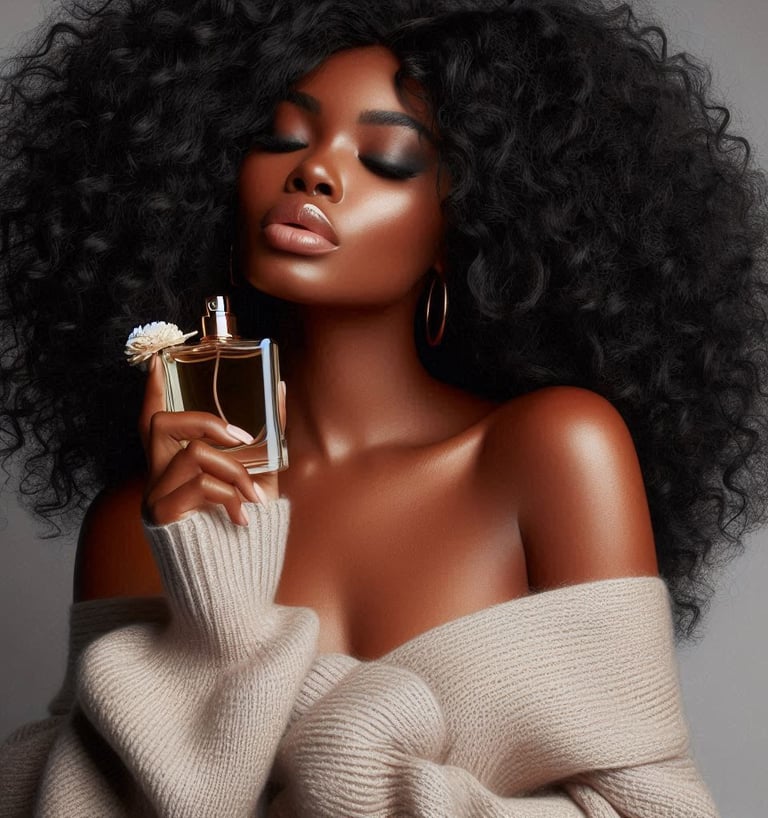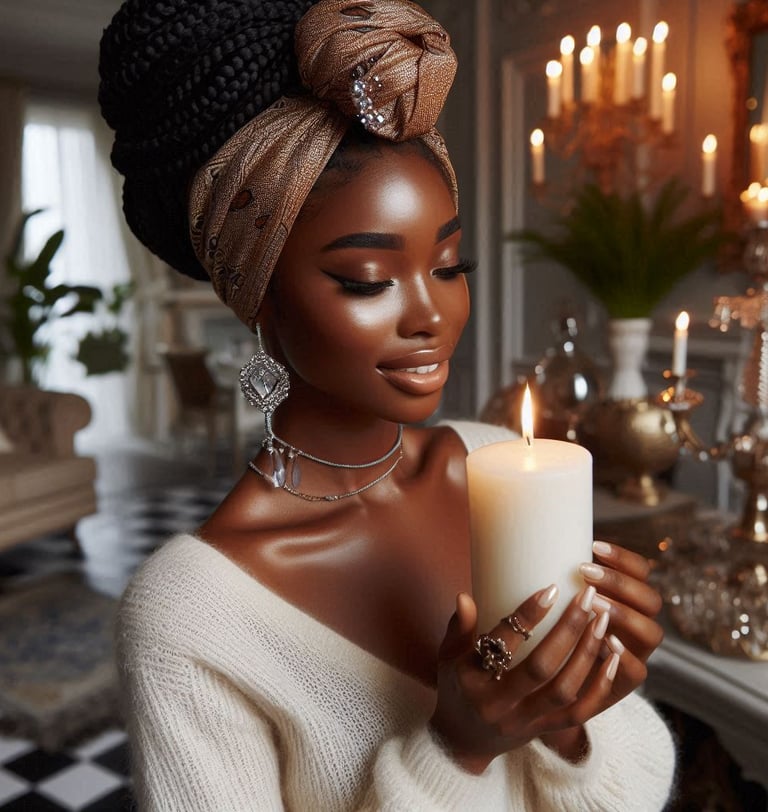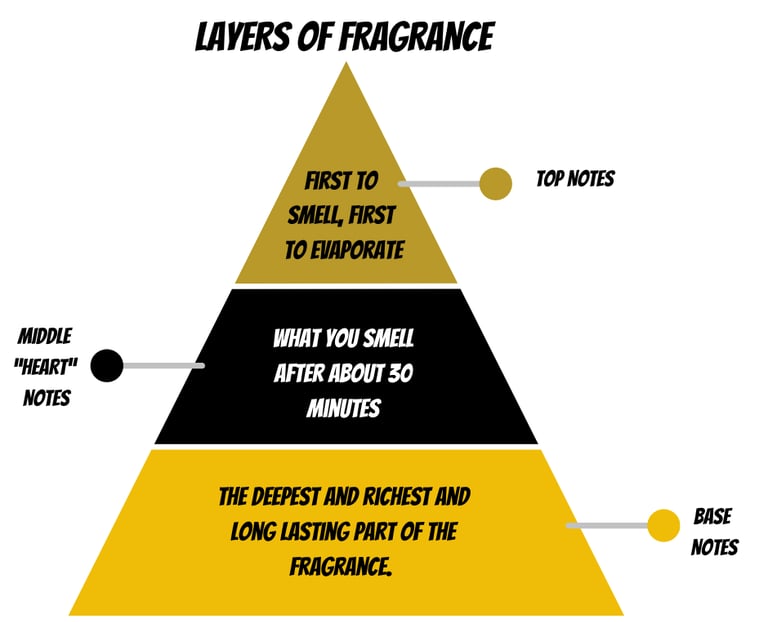WHAT IS FRAGRANCE?
The Science, Art & Mystery Behind Scent
2/24/20253 min read


What Is Fragrance? The Science, Art & Mystery Behind Scent
Have you ever caught a whiff of something that instantly transported you to a memory or made you feel warm, happy, or even nostalgic? I remember the first fragrance that I smelled. It was Jovan Musk. It was my mom's favorite. It's the reason I am a musk girl to this day and every time I smell Jovan Musk, I go right back to when I was 6 or 7, rummaging through her cabinets to find it. That’s the magic of fragrance, a captivating blend of science and artistry that has enchanted humans for centuries. Today, we’re diving into what fragrance is, how it’s made, and why we are so naturally drawn to it.
What Is Fragrance?
At its core, fragrance is a combination of aromatic compounds that create a pleasant (or sometimes intriguing) smell. We encounter fragrances daily—in perfumes, colognes, body sprays, candles, and even everyday products like lotions and detergents. But fragrance is so much more than just a nice smell; it’s an experience, a memory, and a form of self-expression.
The word “perfume” itself comes from the Latin “per fumum,” meaning “through smoke,” a nod to its ancient roots when burning fragrant resins and oils was a sacred ritual.
The Composition of a Fragrance
Every fragrance, whether a luxurious perfume or a comforting room spray, is composed of three key components:
Aromatic Compounds: These are the essential oils and synthetic scents that create a fragrance’s unique profile. They can be derived from flowers, fruits, spices, woods, and resins.
Alcohol or Oil Base: This acts as the carrier, helping disperse the scent when applied. Perfumes are typically alcohol-based for a lighter application, while oil-based fragrances tend to be richer and longer-lasting.
Fixatives: These ingredients help stabilize the fragrance and ensure it lasts. Traditional fixatives include natural substances like musk and ambergris, though today many brands use synthetic alternatives.
The Fragrance Pyramid
A fragrance unfolds in layers, often described as a pyramid:
Top Notes: The first impression—light and fresh, but they evaporate quickly.
Heart (Middle) Notes: The core of the fragrance—floral, spicy, or fruity—that develops after the top notes fade.
Base Notes: The lasting impression, often warm, musky, or woody, giving the scent its depth and longevity.
Understanding this structure is key to appreciating how a fragrance evolves on your skin over time. You will also, with some practice, start to discover what notes you are more drawn to or others that you may not like.
Why Humans Are Drawn to Scent
So, why are we so fascinated by fragrance? The answer lies in our biology and emotions.
The Science of Scent & Emotion
The olfactory bulb, which processes smell, is directly connected to the brain’s limbic system—the area responsible for emotions and memory. This powerful connection is why a certain fragrance can evoke nostalgia, comfort, or even excitement. In fact, studies show that 75% of our emotions are triggered by scent, more than any other sense.
Cultural & Psychological Appeal
Throughout history, fragrance has played a role in rituals, romance, and self-expression. From ancient Egypt, where perfumes were considered sacred, to modern luxury brands that tell a story with each bottle, scent has always been a reflection of both personal and cultural identity.
How Fragrance Impacts Daily Life
We often underestimate how much fragrance shapes our everyday experiences. From the invigorating scent of your morning shower gel to the comforting aroma of a favorite candle, scents subtly influence our mood, productivity, and well-being.
Aromatherapy & Wellness
Certain scents, like lavender and eucalyptus, have been proven to reduce stress, improve sleep, and promote relaxation. This therapeutic side of fragrance goes beyond luxury and becomes a tool for mental and physical wellness.
Final Thoughts
Fragrance is more than just a pleasant aroma; it’s a journey for the senses and the soul. Understanding the composition, evolution, and emotional power of scent opens up a world of appreciation for this ancient and ever-evolving art.
So, what’s your favorite fragrance, and what memory does it bring back for you? Let me know in the comments below! And if you’re as captivated by the world of fragrance as I am, stay tuned for more scent education, perfume reviews, and fun explorations into the art of smelling amazing.




